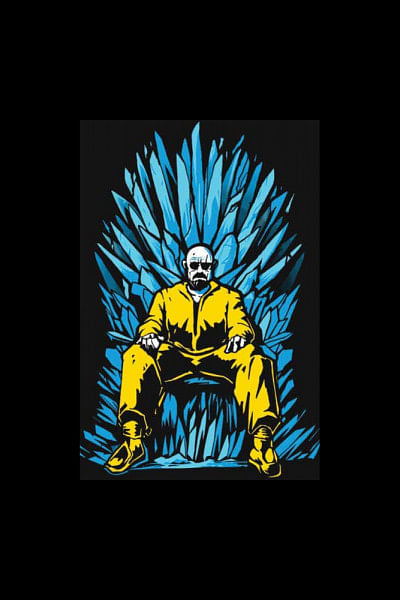Why the dark side is taking over entertainment

Everyone loves a good old-fashioned villain. Indeed it's very important for any story-telling medium to have a worthy antagonist biting at the heels of the main character. Like the famous director Alfred Hitchcock used to say, "The more successful the villain, the more successful the picture." But one thing that's been apparent in the last decade or so is that villains are no longer in the backseat playing second fiddle to the hero. Now (more than ever before) they are in the limelight, and we just can't get enough of them.
Comparing the most popular shows of the 60s and today, we've made quite a drastic leap to the darker side of things. With the original Star Trek, dozens of timeless sitcoms like Gilligan's Island and the wacky adventures of Batman starring Adam West, the 60s were a magical time, I think. History says otherwise though. The Vietnam War was in full force back then, and amidst the recession and political unrest the last thing someone wanted to do was curl up on a nice Saturday evening and watch some dude make drugs and battle alcoholism. Television is a form of entertainment, and the biggest entertainment of all is escapism. So the overall tone of television might reflect the exact opposite of what the viewers are experiencing in their lives. Does that mean we're so happy that we enjoy seeing others suffer? Not necessarily. But the vast majority of viewers now do have safe, lethargic lifestyles and the terrible acts committed onscreen never really hit close to home. People now are also bound by a larger number of rules, manners and etiquette imposed by society in order to be 'politically correct' in every aspect of their lives. So to see a character actively ignore these laws and do whatever they want must be the biggest form of escapism there is. This is just a theory.
A bigger and more obvious reason for this rise is, well, people get bored. They get bored of the white knight with his idealistic goals saving the damsel in distress from the villain who is evil just because. Tropes are established and people want something new, and they get it in the anti-hero. Anti-heroes are those who want to do good but lack a heart of gold, so to achieve their goal they employ tactics: illegal, immoral or otherwise. These were more realistic characters with believable vices, but they too became overused and underdeveloped. So what next? Well Darth Vader was always more popular than Han Solo.
What's fascinating about villains is that there's really one way to play a hero but a thousand different ways to be a bad guy. This led to complex, three-dimensional villains with engaging and believable character arcs that gained admiration from audiences everywhere. The most obvious example is Heath Ledger's Joker- a performance that spontaneously led to the birth of a million fanboys and "Why So Serious?" being plastered on everyone's news feeds for a couple of years. But that's kind of the beauty of it. A villain so charismatic and provocative that it actually caused a cultural phenomenon, isn't that what all villains are supposed to be?
Looking at shows like Game of Thrones, House of Cards, Breaking Bad and Mad Men, it seems people love watching shows starring leads with questionable morals. Television is taking all the risks and pioneering the use of the "villain protagonists" like Frank Underwood and Walter White. An antagonist doesn't necessarily mean "villain" like many people think, but rather anyone who opposes the protagonist. The fact that I have to even make that distinction is proof that the dynamic is shifting. Why do we feel so intrigued to see the exploits of such a reprehensible tyrant like Frank Underwood? Why do we share in Frank's sadistic pleasure as he destroys the lives of many decent people, and even sometimes cheer him on? It's because Frank is the most enthralling character ever. The fourth-wall breaking asides make us feel like co-conspirators in Frank's quest for power as we're questioning ourselves on how low and how far he's willing to push it.
At first Walter White seems like a tragic character. Diagnosed with cancer and making meth to help his family financially, it almost seems noble. That is until the money and power goes to Walt's head and he becomes as despicable as any other murderer. In a classic deconstruction of the "villain turned hero" trope, he plunges further and further into the abyss, taking us with him. Showrunner Vince Gilligan says, "I like to picture viewers losing sympathy for Walt. With every episode yet another viewer or two is saying, 'You know, I'm not with this guy anymore. I'm watching him, but I'm not sympathizing.'" This unconventional story-telling interacts with the audience in a way that's been never done before while still managing to have every glued to the screen every single week.
So whatever the reason may be, the villains are here for good. And everyone loves it.

 For all latest news, follow The Daily Star's Google News channel.
For all latest news, follow The Daily Star's Google News channel. 



Comments